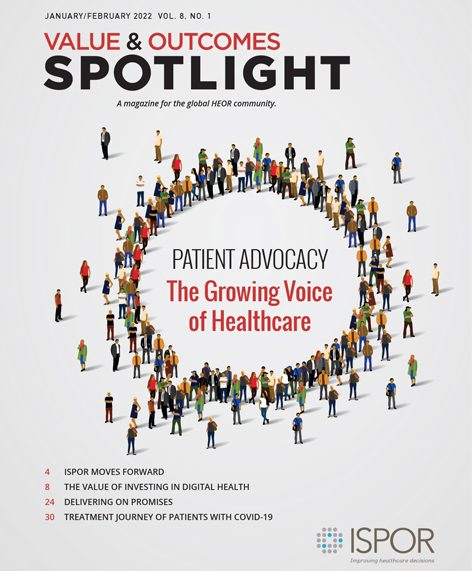The Power of Patient Advocacy
This quote is from an actual patient—my neighbor and someone who is actively involved with her health: “I felt like my own personal ‘disease detective’ by really helping to solve my health mystery! I began to feel better just because I felt more involved.” She is a 45-year-old woman who scrupulously keeps her annual exams, walks 2 miles daily, does yoga 3 times a week, eats healthy, and takes her multivitamins. In the past 6 months, though, she has not been feeling well and has visited her doctor several times but received little satisfaction. Unconvinced, she decided to take a more proactive role in her diagnosis and began journaling her health by noting her symptoms, monitoring her blood pressure, temperature, oxygen, and weight, and logging the foods she ate. At her next doctor’s appointment, she was well prepared for a data-driven discussion with her physician. By sharing her individualized data and experiences combined with her physician’s medical knowledge, she ultimately received a diagnosis and worked with her doctor to formulate a treatment appropriate—and specifically—for her. This real-world example is just one of many that demonstrates improved outcomes and care when a patient actively engages and collaborates with a healthcare provider. A patient’s voice and personal advocacy are crucial not only to benefit their own healthcare but to drive improved care and outcomes for future patients with similar health issues. In fact, published research has demonstrated that as patients become more involved in their healthcare, they experience improved outcomes.
In today’s health-conscious environment, both patients and caregivers have access to numerous healthcare resources, including online patient blogs, communities, and advocacy organizations. These platforms bring everyday value to patients’ lives by allowing them to better coordinate their care, find knowledgeable healthcare providers, navigate complex health systems, and connect to a community of patients who may be experiencing similar health issues. Patient advocacy organizations bolster this value by actively representing patients and their interests in disease awareness, patient care, clinical research, and policy making—all in the altruistic cause of improving patient care and outcomes.
As researchers, it is essential for us to partner and engage with patients because—as evidenced in the literature—patient involvement can minimize morbidity, mortality, and costs. Representing patient views and perspectives in clinical trials can only improve timelines and reduce costs because appropriately designed studies will better capture outcomes important to patients and not just outcomes necessary for drug registration. Not only can patients serve as knowledgeable study subjects in clinical trials, but they can also enable protocol development, clinical study design, and methodology; inform manufacturers throughout the full development cycle of the product; and facilitate optimal patient enrollment in clinical trials. The ultimate result is a win-win for both patient and manufacturer.
Collaboration and transparency must exist among all healthcare stakeholders to establish trust and credibility in the healthcare system. Patients should be empowered by, knowledgeable of, and engaged in their healthcare by being a voice in the system and serving as one of the key stakeholders in decision making. ISPOR is already doing its part by engaging patients globally and hosting patient roundtables, short courses, webinars, and conferences with the goal of providing patients worldwide with a forum to actively share their experiences with other stakeholders. By involving patients today, we can only further improve patient outcomes for the generations to come.
As always, I welcome input from our readers. Please feel free to email me at zeba.m.khan@hotmail.com.

Zeba M. Khan, RPh, PhD
Editor-in-Chief, Value & Outcomes Spotlight

